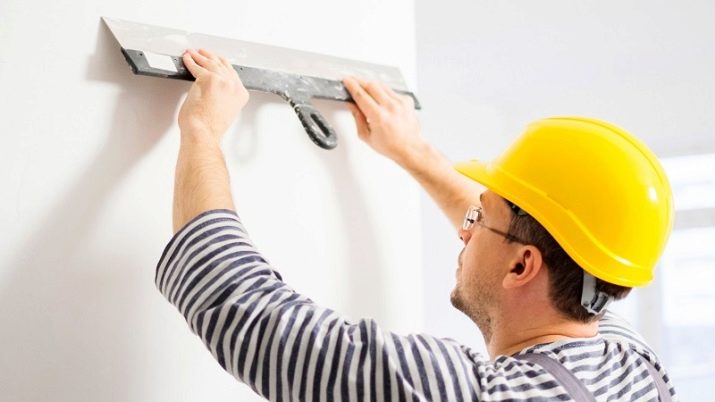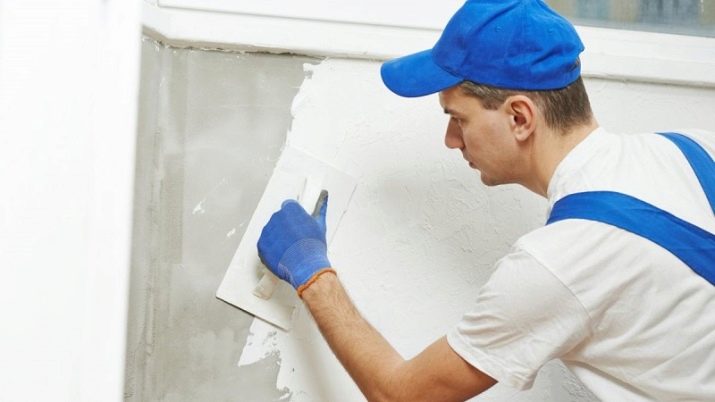All about the profession finisher

Probably, there is no such person who at least once in his life has not resorted to the services of repairmen. That is why the demand for this profession in Russia is constantly growing. Of course, when arranging a living space, you can always try to save money and make repairs with your own hands, or invite self-taught people who promise to complete the entire front of work for a meager price. However, as practice shows, such solutions are rarely successful, and the quality of the work performed turns out to be rather low.
In our review, we will dwell in more detail on the description of the finisher's profession, his functional duties, and also talk about the skills that this worker should have.

Peculiarities
A finisher is a craftsman who decorates premises of a wide variety of engineering structures, giving them an aesthetic and perfect look. This master must have a solid knowledge of all existing technologies and methods of interior decoration.
If we consider the specialization of the master in facing works from a historical position, then we can say that this profession appeared relatively recently. However, this does not mean at all that in the old days people did not ennoble their homes. Of course, even several centuries ago, every homeowner sought to bring comfort and style to his home, but ordinary people increasingly performed these works on their own. And if you look closely at the architectural monuments, palaces and estates that have survived from ancient times, you can conclude that nobles and noble people, no doubt, used the services of professionals when finishing their houses.
Nowadays, high-quality finishing of apartments and houses is available not only to wealthy homeowners, but also to people with an average income. Despite this, many are still trying to save their money and do the work on their own.
In most cases, the lack of the necessary skills and abilities, sooner or later, leads to the fact that they still have to hire professional finishers and entrust them with repeated repairs or performing particularly difficult work.

Like any other profession, the activity in the field of decoration has its advantages and disadvantages. Repairmen today widely in demand in the market of general construction services, therefore, people who have mastered this specialty can easily provide themselves with regular orders. This is especially true in the context of the high unemployment rate in the country. Even inexperienced novice finishers who have some skills and do their job responsibly will never sit idle.
Among the pluses it should be noted decent level of payment, although the final price of the service directly depends on such factors as the volume and complexity of the work performed, as well as on the specialist's own cost policy. In addition, the level of payment for the repairman varies significantly depending on the regions. So, in Moscow, the average salary of a given specialist is about 60-100 thousand rubles per month. A big bonus for nonresident craftsmen is the solution to housing problems: most large firms provide their employees with living quarters for the duration of all duties, thereby contributing to savings on rent. Finishers working individually will probably have to love the opportunity to plan your own work schedule and set prices for their services.
Self-employment is one of the reasons many people decide to become a finisher. Indeed, it is not at all necessary for a general-purpose master to work for any company, because he may well look for his customers on his own. This is especially convenient if the work is not perceived as permanent, but acts as a part-time job in the free time from the main employment.
For example, a finisher can take orders on a weekend and have a good extra income.

It is important that the ability to decorate premises will definitely come in handy for every person in everyday life, since at any time he can make repairs in his apartment or help with these close people. It is not necessary to graduate to become a professional finisher. It is quite enough to study at a specialized college or even take special courses. Although many experienced masters do not have any special education at all, they receive all their knowledge and skills over many years of practice.
Despite such an impressive list of advantages of the profession, many interior decorators are often faced with factors that most negatively affect the overall perception of this profession. So, the work of a repairman is associated with work in dirty rooms, therefore, the work of the finisher is accompanied by constant dust in the workplace. This is not only unpleasant, but also can be harmful to health. That is why such work is contraindicated for people who have problems with the respiratory system or are prone to allergies.
Among the minuses, one can also note increased physical activity... Craftsmen most often do their work while standing or in a bent position. In addition, they constantly have to carry and lift weights, which can also lead to health problems. The work of a finisher is usually is seasonal. This means that in winter there will be fewer orders, and accordingly, the level of income will also decrease.

Responsibilities
Today, the finishing profession is divided into several narrower specializations, while an experienced craftsman must own at least some of them.
So, the following areas of work in construction are classified as narrow-profile:
- plasterer: performs plastering of any surfaces in houses;
- putty: prepares plastered horizontal and vertical surfaces (ceilings and walls) for further decoration;
- painter: takes on the decorative painting and wallpapering, as well as the application of any other decor to the walls;
- gypsum plasterboard worker: is able to literally transform a room before our eyes, change its layout and design by installing partitions made of plasterboard sheets;
- Tiler: This person is indispensable when renovating kitchens and bathrooms as they have the skill of tiling.
Finishers can also include a carpenter, installer, builder, facade finishing specialist, artwork finisher and reinforced concrete finisher. Fitters can have a wide range of responsibilities. Much depends on whether a finisher works in a construction company or is part of a small team, where he acts as a foreman.

If the repairman is "at the helm" of the entire finishing process, then he not only works together with all other specialists, but also exercises control over the activities of other employees. In addition, it is he who is responsible for the consumption of materials.
In accordance with ECTS, the job description of a universal finisher includes the following works:
- dismantling and installation of windows, as well as doors, floors, tiles and other elements;
- replacement of electrical wiring;
- execution of plumbing works;
- surface putty, leveling and priming;
- painting or gluing wallpaper, carried out on various types of surfaces;
- soundproofing.
When carrying out any type of work, the finisher must exactly comply with all the requirements of the customer for the project.
Please note that this list is not complete and exhaustive, since different firms may impose additional requirements on their employees.

Knowledge and skills
Good finisher must perform equally well painting, facing and plastering works, as well as have the skills processing of wooden surfaces, laying of linoleum and carpets. This specialist also requires at least the initial skills of an electrician and plumber. In any of these areas, there are a large number of all kinds of subtleties and nuances that the master finisher must take into account when performing interior cladding.
In addition to high quality work, this specialist must be fluent in special construction tools. Thus, we can say that the finisher as a whole is a kind of universal master who, in the course of finishing work on residential premises, must use all his skills and be able to apply skills from a wide variety of areas.
An applicant for a finishing position must be in good health and physically fit... Sharp eyesight and accurate color perception are also required of this person. Another finisher must have information about all the materials that he will encounter in the course of performing his job duties, as well as know the requirements for them, namely:
- operating rules;
- the technique of preparation of working surfaces, solutions and mixtures;
- selection of the correct color scheme and shade;
- styling norms and many other points

Education
To get the profession of a finisher, it is quite it is enough to graduate from a construction college, technical school, or, in practice, learn how to perform a set of basic works. At the same time, decorators have to constantly follow the main trends in the construction market, as well as new trends in the design of premises. The construction segment is constantly being replenished with new finishing materials. To carry out high-quality work, a specialist must perfectly know their technical and operational properties and basic characteristics.
A some masters, graduating from a technical school or a construction college, begin their professional activities as a worker and at the same time enter universities, where they receive one of the engineering or architectural specialties.
After receiving a diploma, such workers have the right to apply for good career advancement and goodbye to dirty work.









